Social justice philanthropy in the U.S. is growing because of occasionally harmful choices the U.S. citizenry makes to elect certain officials, support particular legislation, and endorse some organizations over others. As the recent U.S. 2016 election indicates, we have a good deal of work ahead of us as progressives if we are to work toward changing public policy, societal mores, and institutional biases that reproduce social injustices.

Many individuals and organizations fight against injustice and promote social equality in systems, structures, and institutions in the U.S. and abroad. Through organizing and activism, they engage all members of society in dialogue and action toward the root causes of social problems. Working at the causation or structural level, social justice philanthropy responds to long-term needs. It is proactive rather than reactive.
We’ve assembled a Top Ten List here to help you take action — whether that is through donations or volunteerism — as promoting social justice is a progressive act. As progressives, we need to challenge established systems and foster change. Think of supporting a social justice organization as being part of public, collective effort such as legislative advocacy, changing policies and practices, or political action. Progressive philanthropy’s investment lies in supporting and facilitating change; we challenge the assumptions that economic and social inequities are somehow unavoidable as the price of progress or prosperity.
“You have to take power,” said American abolitionist, Frederick Douglass, the son of slaves. “No one gives it.” Help to ensure that people who are typically ignored and disregarded have a voice in public social life. By sharing power, we can hold all our institutions—from governments to corporations to nonprofits—and society itself responsible for social justice.
Rather than organize our suggested list of social justice organizations by importance, we’ve made our list alphabetical to signify that they’re all really important.
What They Do: BYP100 is an activist, member-based organization of Black 18-35 year old’s dedicated to creating justice and freedom for all Black people. They do this through building a collective focused on transformative leadership development, direct action organizing, advocacy, and education using a Black queer feminist lens. They strive to be reflective of all Black youth and build spaces for young Black activists where they can engage and speak for themselves.
Why It’s Important: The legacy of Black communities as chattel slavery, with a forced separate society through Jim Crow laws, and through mass incarcerations affects Black youth today. Investments in Black futures, both public and private, have the potential to generate a guaranteed income, living wages, a federal jobs program, and freedom from discrimination for all workers. Social justice programs like BYP100 promote economic sustainability and eliminate the displacement of Black community members.
Fair Immigration Reform Network
What They Do: The Fair Immigration Reform Movement is a national coalition of grassroots organizations fighting for immigrant rights at the local, state, and federal level. They are led by a group of 44 organizations from across 32 states around the country committed to immigrant rights.
Why It’s Important: U.S. immigration policy fails to address the life stories behind immigration. Most people leave their homes to avoid violent conflict, natural disasters, or economic distress due, in part, to U.S. trade policies. Such realities prompt individuals to come to the U.S. in search of safety and a better life. Comprehensive immigration reform should include measures that will allow the U.S. to help countries to address the economic, trade, social, and security factors driving high rates of migration. Such proposals should target funding for rural development, youth employment, and for supporting programs that make credit and financing opportunities available, especially to vulnerable populations.
What They Do: Fight for $15 is an international movement in over 300 cities on six continents of fast-food workers, home health aides, child care teachers, airport workers, adjunct professors, retail employees – and underpaid workers everywhere. The Fight for 15 movement has championed a model of labor activism that focuses on engaging workers to improve working conditions and wages.
Why It’s Important: 59% of Americans, including 84 percent of Democrats and 58 percent of independents, support a $15 minimum wage, according to a survey by the Public Religion Research Institute, a nonpartisan research group. Just 32 percent of Republicans do. More than 50 million workers earn less than $15 an hour, and many Americans are upset about the loss of millions of factory jobs and the explosion of low-paying service-sector jobs. Trump has attacked the idea, at one point saying that wages are too high. Source: New York Times.
Indigenous Environmental Network
What They Do: IEN’s activities include building the capacity of Indigenous communities and tribal governments to develop mechanisms to protect sacred sites, land, water, air, natural resources, health of both people and all living things, and to build economically sustainable communities. IEN maintains an informational clearinghouse. It organizes campaigns, actions, and public awareness to build the capacity of community and tribes. It builds alliances among Indigenous communities, tribes, inter-tribal and Indigenous organizations, people-of-color/ethnic organizations, faith-based and women groups, youth, labor, and environmental organizations. IEN convenes local, regional, and national meetings on environmental and economic justice issues and provides support, resources, and referral to Indigenous communities and youth throughout the Americas and the world.
Why It’s Important: Environmental assaults on Indigenous lands, waters, communities, and villages by the 1990’s had included large toxic municipal and hazardous waste dumps, nuclear waste storage facilities. and industrial and mineral development in Indian country literally leaking and oozing out of the ground with toxic poisons. The assault continues, and advocacy around fossil fuel leases, tribal resilience in the age of sea level rise, Keystone XL, protecting forested areas and their Indigenous populations, among others, is necessary to combat efforts to diminish Indigenous life and culture.
Muslims for Progressive Values
What They Do: MPV establishes and nurtures vibrant progressive Muslim communities worldwide. They envision a future where Islam is understood as a source of dignity, justice, compassion, and love for all humanity and the world. They do this by creating opportunities for religious discourse, volunteer and community activities, and cultural events bringing together the arts, spirituality, and social activism. MPV participates in civil discourse, engaging with the media and government entities, and by partnering with both Muslim and non-Muslim progressive organizations.
Why It’s Important: Muslim Americans find themselves the objects of suspicion and mistrust as radicalism of the few puts all in a spotlight. Many Muslim individuals have faced Islamophobic hate crimes. All too frequently, Muslim Americans remain outside the U.S. mainstream even though they are an often well-educated and diverse group with the potential to make important contributions to civic life. During the 2016 presidential campaign, Trump said, “Islam hates us,” endorsed the idea of a government registry of Muslims, and proposed suspending immigration by Muslims or people from some Muslim majority countries. There was a sixty-seven-per-cent increase in hate crimes against Muslims nationally last year.
National Organization for Women
What They Do: As the grassroots arm of the women’s movement, the NOW is dedicated to a multi-issue and multi-strategy approach to women’s rights and is the largest organization of feminist grassroots activists in the United States. NOW has activists in all 50 states and the District of Columbia. Since our founding in 1966, NOW’s purpose is, through intersectional grassroots activism, to promote feminist ideals, lead societal change, eliminate discrimination, and achieve and protect the equal rights of all women and girls in all aspects of social, political, and economic life.
Why It’s Important: Attempts to restrict the rights to effective birth control and emergency contraception, access to safe and legal abortion, and reproductive health services and education for all women are constantly under threat in the U.S. Issues of violence against women, welfare reform, livable wages, job discrimination, pay equity, housing, social security, pension reform, LGBT rights, racial justice, and constitutional equality continue to devalue women’s lives.
What They Do: Planned Parenthood is a health care provider, an informed educator, a passionate advocate, and a global partner helping similar organizations around the world. The organization delivers vital reproductive health care, sex education, and information to millions of women, men, and young people worldwide.
Why It’s Important: The fundamental right of each individual, throughout the world, to manage his or her fertility and to possess reproductive self-determination is not stable and secure. For example, during his 2016 presidential campaign, Trump issued a call to make permanent the Hyde Amendment that bans almost all federal taxpayer funding of abortions. Around the world, more than 200 million women and girls in developing countries who wish to delay or plan childbirth still lack access to modern contraceptives, information, and services. Pregnancy is a leading cause of death for adolescent girls worldwide, with nearly 70,000 killed annually from complications related to pregnancy and childbirth.
What They Do: The Task Force for Global Health provides all people with opportunities to lead healthy, productive lives. Recipient of the Conrad N. Hilton Humanitarian Prize, the Task Force consists of eight programs focused on neglected tropical diseases, vaccines, field epidemiology, public health informatics, and health workforce development. The Task Force plays essential convening roles for the programs and helps them advocate to funders and partners.
Why It’s Important: Neglected tropical diseases are burdens for many developing countries and cause blindness, disfigurement, cognitive impairment, stunted growth, and even death. Vaccines are a vital tool to protect health, and increased access to vaccines for cholera and influenza in developing countries is especially important. Polio eradication can be accomplished when countries switch to safer and more effective vaccines and address barriers to eradication through training healthcare workers in how to detect and respond to disease outbreaks such as Ebola and by improving the use of information to protect and promote health.
What They Do: The Southern Poverty Law Center is dedicated to fighting hate and bigotry and to seeking justice for the most vulnerable members of society. Since 1971, the SPLC has won numerous landmark legal victories that have toppled institutional racism and stamped out remnants of Jim Crow segregation; destroyed some of the nation’s most violent white supremacist groups; and protected the civil rights of children, women, the disabled, immigrants, and migrant workers, the LGBT community, prisoners, and many others who faced discrimination, abuse, or exploitation. Their Intelligence Project tracks and exposes the activities of hate groups and other domestic extremists, and their Teaching Tolerance program produces and distributes – free of charge – anti-bias documentary films, books, lesson plans, and other materials that reduce prejudice and promote educational equity in the nation’s schools.
Why It’s Important: Since Donald Trump won the Presidential election, there has been a dramatic uptick in incidents of racist and xenophobic harassment across the country. There are currently more than 1,600 domestic hate and extremist groups operating across the U.S. – including the Ku Klux Klan, the neo-Nazi movement, neo-Confederates, racist skinheads, black separatists, antigovernment militias, Christian Identity adherents, and others. An online survey of teachers found that more than half had seen an increase in hostile speech during the campaign. If the harassment continues, states may be pressured to strengthen their protections of racial, religious, and sexual minorities. Some, such as South Carolina, still don’t have hate-crimes laws.
What They Do: Transgender Law Center is a multidisciplinary organization that advances the movement for transgender and gender non-conforming (TGNC) people using an integrated set of approaches, including strategic litigation, policy advocacy, educational efforts, movement building, and the creation of programs that meet the needs of TGNC communities.Transgender Law Center works to change law, policy, and attitudes so that all people can live safely, authentically, and free from discrimination regardless of their gender identity or expression. They envision a future where gender self-determination and authentic expression are seen as basic rights and matters of common human dignity.
Why It’s Important: Too often, people who live outside of the socially-enforced binary boxes of gender pay a physical, emotional, and economic toll. Whether it’s a lack of access to quality and compassionate health care, or an out-of-date legal system that allows blatant discrimination, equality is too often out of reach for trans people. Transgender and gender nonconforming (TGNC) people experience abuse in prisons, jails, immigration detention, state hospitals, and other forms of detention, and at the hands of law enforcement.
Photo credit: bloomsberries via Foter.com / CC BY-ND


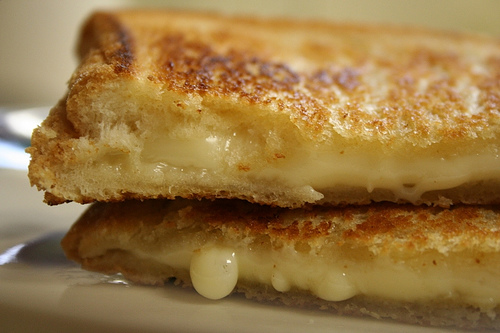
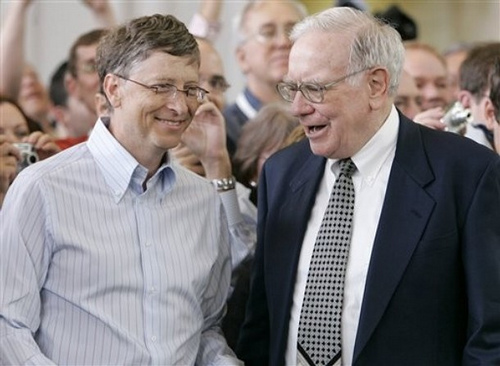
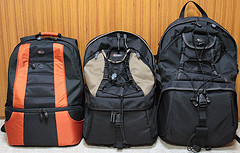
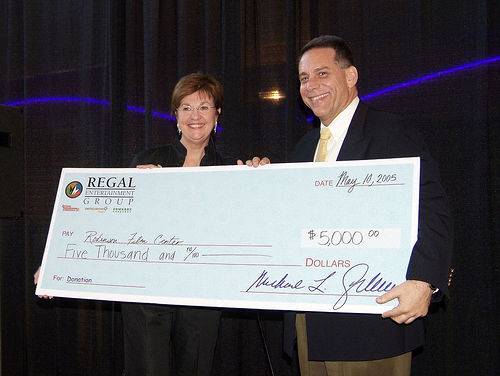

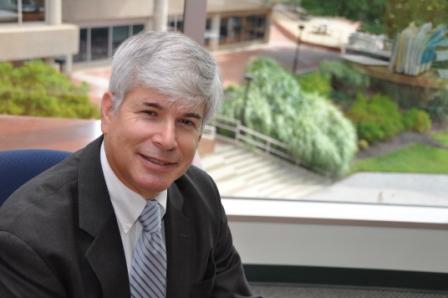
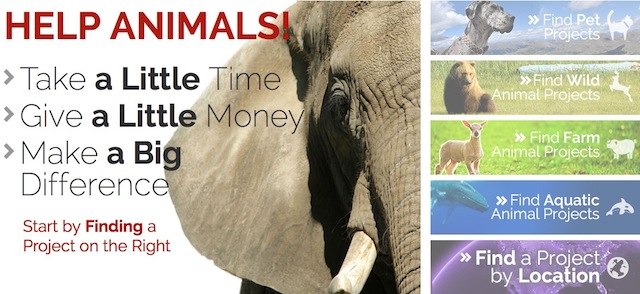
Thanks, Carolyn, great list. I know you limited this to ten, but I’d also like to plug the American Friends Service Committee, a Quaker-based nonprofit, which works for social and economic justice, peace, diversity, inclusion and prison reform.
Thanks to all,an interesting and very meaningful article.i really appreciate and like such type of article.
what up my transgender gamers https://uploads.disquscdn.com/images/cc7e6a217050a98b8a65bb52d8821457293fda175897edd091511ff678a39e9a.jpg